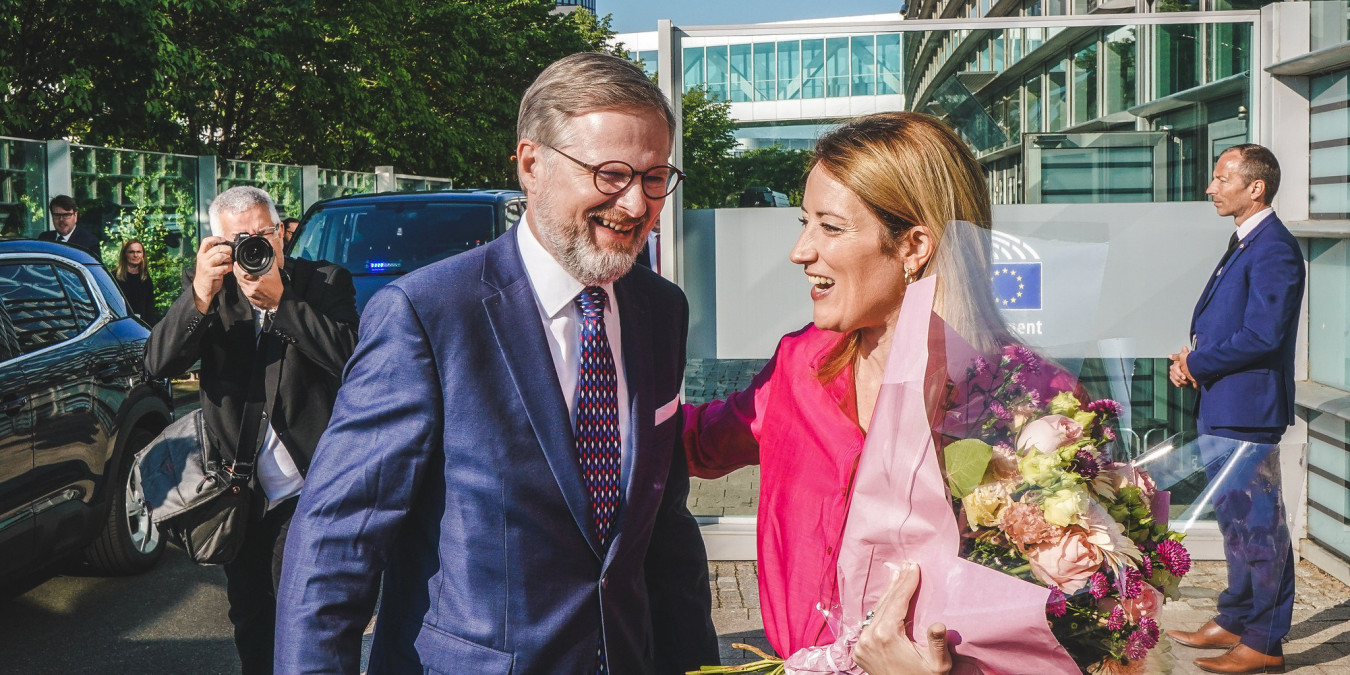Six months of pragmatism, partnership, and progress: The Czech Presidency of the EU
Published: Dec 15, 2022 Reading time: 4 minutes Share: Share an articleIn the past year, Europe has been plunged into the crises of war on our continent, mass migration, an energy crisis, inflation and a cost of living crisis, not to mention a global food crisis. In July 2022, the Czech Government, in its capacity as President of the Council of the European Union, stepped into the breach of high international politics and began to work tirelessly to face down these multiple challenges.

As a Czech NGO, we at People in Need took a great interest in how the Czech Presidency would play out. This was motivated by several factors; first, there was a sense of pride that our small country was taking up the mantle of leading Europe in a particularly tense moment. Second, as a global humanitarian and human rights actor, we were hopeful that the Czech Presidency would conduct itself in the Czech spirit of kindness and consideration for the less fortunate in society. We are happy to report that throughout the tenure of the Presidency, the Czech government has carried itself admirably.
Over the past six months, we have seen the Czech Presidency take the lead on various initiatives related to our work. Of these, we are most grateful for their unwavering stance in calling out Russian aggression in Ukraine; for achieving additional funding for the reconstruction of Ukraine; for bringing Loss and Damage to the table at COP27; and for their ongoing commitment to assisting those living in the developing world.
The first of these points, the calling out of Russia's aggression in Ukraine, is essential. Whilst it might seem obvious to call out the actions of Russia in Ukraine, it is important to do so, for being willing to call aggression by its name is an essential tool in signalling to others that such behaviour is unacceptable. In addition, opposing such actions helps reduce the likelihood of other populations becoming victims of violence—thus preventing or reducing further humanitarian crises. Furthermore, by being uncompromising in this stance, the Czech Government has enabled us to motivate ordinary Czech citizens to take a stand and support the ordinary Ukrainians who have been displaced and dispossessed by Russia's actions.
In obtaining extra funding for the reconstruction of Ukraine, the Czech Presidency has shown great maturity in acknowledging that, as much as we wish it were not so, the humanitarian crisis in Ukraine is with us for the foreseeable future. We consider this step vital for Ukraine, wider Europe, and the world. In the first instance, the reconstruction of Ukraine will help alleviate the dire (and growing) humanitarian crisis in the country; in the second, it will ease the strain on the humanitarian capacities of its neighbours, particularly, for example, Moldova, where the ordinary people of the country have generously opened their doors and their hearts to their neighbours, despite the significant burdens of doing so. In the final point, it is vital that we get Ukrainian industry and agriculture up and running, not only so that Ukraine can stand on its own two feet, but as we know, Ukraine is vital to the global food supply, and we must seek to get production back to pre-war levels as soon as possible; doing so will help mitigate hunger across the world.
At the UN Panel on Climate Change (COP27), the Czech Presidency was vital in bringing the concept of a Loss and Damage Fund to the agenda. This concept evokes a more equal means of burden sharing in the context of the global climate crisis. This step is vital towards bringing equality to the battle against climate change. More specifically, this is vital to us as humanitarians because most of the damage arising from the adverse consequences of climate change, such as extreme weather, sea level rises, increasing temperatures, ocean acidification, salinisation, soil erosion and forest degradation, loss of biodiversity, and desertification have much more immediate and insidious impacts in the developing world or in countries which lack the capacities to mitigate climate-induced crises. Therefore, the agreement at COP27 to establish a Loss and Damage Fund is a considerable achievement.
Finally, given the current crises at home, we must acknowledge the Czech Presidency's refusal to become fixated on issues in its own backyard. As we know, the world's problems are not necessarily confined to one part of the globe. As the necessity for Loss and Damage and the impact of the Ukraine war on world food stocks show, crises in one place can drastically impact the safety and security of those living in another. Therefore, it is admirable that during this time of tumult, the Czech Presidency has demonstrated a determination to keep in touch with resolving issues in the developing world.
Given the tasks that it inherited, it would have been easy for the Czech Presidency to focus solely on Europe-centric issues; however, we are happy to see that this has not been the case, and we thank our friends in the Czech Presidency, Government, and Ministry for Foreign Affairs for their commitment to a humanitarian agenda throughout their tenure.



